Farmhouse kitchen sinks have become a beloved feature in many homes, especially those embracing a rustic or country aesthetic. But their appeal goes far beyond just looks—they are also incredibly functional, offering a combination of size, depth, and durability that suits the needs of both avid cooks and large families. The hallmark of a farmhouse sink is its deep basin and exposed front apron, which protrudes slightly from the surrounding cabinetry. This design not only makes a bold visual statement but also provides practical benefits that modern homeowners appreciate.
One of the most compelling aspects of a farmhouse kitchen sink is its size. These sinks are typically much larger than standard kitchen sinks, making them perfect for washing large pots, pans, and baking sheets that might not fit comfortably in a regular sink. The deep basin also allows for more room to work, which is particularly useful if you frequently cook large meals or entertain guests. The extra depth helps to contain splashes and spills, keeping your kitchen counters cleaner and reducing the need for constant wiping down during food preparation.
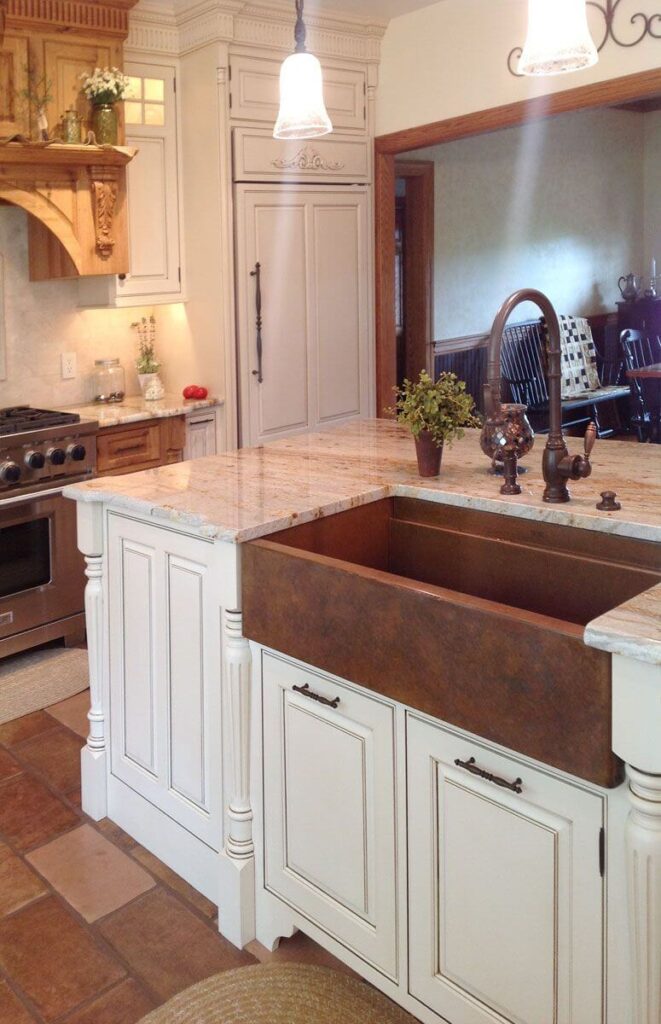
The aesthetic appeal of a farmhouse sink is undeniable. Its classic, vintage-inspired design evokes a sense of nostalgia, recalling a time when kitchens were the heart of the home, bustling with activity. The exposed front apron adds a distinctive, charming look that can either complement or contrast with your cabinetry, depending on the style you choose. Whether you opt for a traditional white porcelain sink or a more contemporary material like stainless steel or fireclay, a farmhouse sink instantly adds character and a touch of elegance to any kitchen.
Farmhouse sinks are not just about looks—they are also about functionality. The large, single-basin design of most farmhouse sinks allows you to soak and wash multiple items at once, which is a huge time-saver. Unlike double-basin sinks, which can feel cramped when dealing with large cookware, a farmhouse sink gives you the space to work comfortably. This is particularly beneficial if you do a lot of handwashing or if you have a busy household where dishes tend to pile up quickly.

Another advantage of farmhouse sinks is their durability. Many are made from materials like fireclay, cast iron, or stainless steel, all of which are known for their strength and longevity. Fireclay sinks, for example, are highly resistant to scratches, chips, and stains, making them an excellent choice for a busy kitchen. Cast iron sinks, often coated with a layer of enamel, offer a similar level of durability while adding a glossy, smooth finish that enhances the sink’s appearance. Stainless steel is another popular option, particularly for those who prefer a more modern or industrial look. It’s resistant to rust and corrosion, and its sleek, reflective surface can add a touch of shine to your kitchen.
The installation of a farmhouse sink is something to carefully consider, as it differs from that of a standard sink. Because the front apron extends beyond the edge of the countertop, the surrounding cabinetry needs to be specially cut or built to accommodate the sink. This can add to the cost of installation, particularly if your existing cabinets need significant modification. However, many homeowners find that the added expense is worth it for the aesthetic and functional benefits a farmhouse sink provides. If you’re renovating your kitchen or building a new home, it’s a good idea to plan for a farmhouse sink from the start to avoid any complications later on.
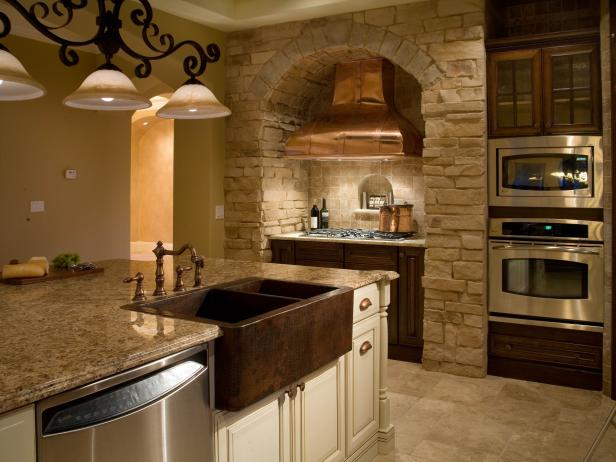
Maintenance is another factor to consider when choosing a farmhouse sink. While these sinks are generally easy to clean due to their large, smooth surfaces, the material you choose will influence the specific care requirements. For instance, fireclay sinks are non-porous and easy to wipe down, but they can be prone to hairline cracks if heavy objects are dropped into them. Cast iron sinks with enamel coatings require gentle cleaning to avoid scratching the surface, and they can be sensitive to acidic or abrasive cleaners. Stainless steel sinks are the easiest to maintain but may show water spots or fingerprints more readily, so regular cleaning and drying are necessary to keep them looking their best.
One of the unique features of a farmhouse sink is its apron-front design, which allows you to stand directly in front of the sink without a countertop or cabinet edge pressing against your stomach. This may seem like a small detail, but it can make a significant difference in comfort, especially during long periods of standing while washing dishes or preparing food. The ergonomics of a farmhouse sink are particularly appreciated by those who spend a lot of time in the kitchen, as the design helps reduce strain on the back and shoulders.
The versatility of farmhouse sinks extends beyond their use in traditional or country-style kitchens. While they are often associated with rustic, farmhouse aesthetics, these sinks can also be a striking addition to more modern or eclectic kitchen designs. For example, a sleek, stainless steel farmhouse sink can complement a contemporary kitchen with clean lines and minimalist decor. Alternatively, a fireclay or cast iron sink with a more traditional shape can provide an interesting contrast in a modern setting, adding warmth and a touch of the unexpected.
Farmhouse sinks are available in a variety of finishes, allowing you to further customize the look of your kitchen. A glossy white finish is a classic choice that works well in both traditional and modern kitchens, offering a clean and bright appearance. Matte finishes, on the other hand, can add a more understated, sophisticated look. Stainless steel farmhouse sinks are typically available in both brushed and polished finishes, giving you the option to choose between a more industrial or refined look. Whatever finish you select, it’s important to consider how it will coordinate with your countertops, cabinetry, and overall kitchen design.
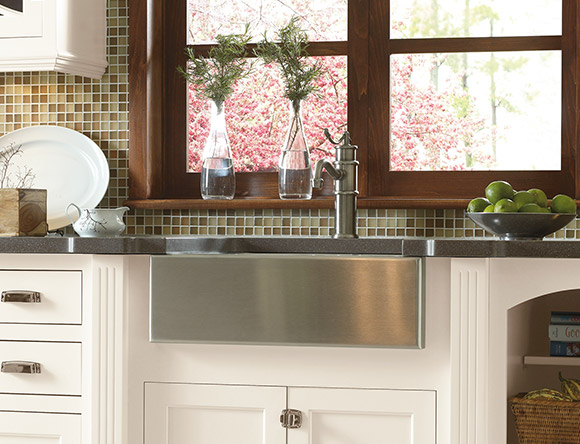
Another consideration when choosing a farmhouse sink is the type of faucet you will pair with it. Because farmhouse sinks are larger and often deeper than standard sinks, you’ll need a faucet with a higher arc or longer reach to ensure full coverage of the sink area. A pull-down or pull-out faucet can be particularly useful, as it allows you to easily direct water where you need it, whether you’re washing large pots, rinsing vegetables, or cleaning the sink itself. It’s also important to consider the style of the faucet and how it will complement the overall aesthetic of your kitchen. Traditional farmhouse sinks often look best with classic, bridge-style faucets, while more modern designs can pair well with sleek, single-handle faucets.
The cost of a farmhouse sink can vary widely depending on the material, size, and brand. While they tend to be more expensive than standard sinks, many homeowners feel that the investment is worthwhile due to the aesthetic and functional benefits these sinks provide. In addition to the initial cost of the sink, you should also factor in installation costs, as well as any potential modifications needed to accommodate the sink’s unique design. However, considering the durability and timeless appeal of a farmhouse sink, it can be seen as a long-term investment that adds value and character to your home.
Finally, it’s important to consider how a farmhouse sink will fit into the overall flow of your kitchen. Because these sinks are larger and more prominent than standard sinks, they can become a focal point in the room. This means that the surrounding elements, such as countertops, cabinetry, and lighting, should be chosen with care to ensure a cohesive design. A well-planned kitchen with a farmhouse sink at its center can create a welcoming, functional space that invites family and friends to gather and enjoy.

Common Mistakes to Avoid
When choosing and installing a farmhouse kitchen sink, there are several common mistakes that you’ll want to avoid to ensure that your sink not only looks great but also functions well in your kitchen. One of the most common mistakes is not accounting for the size and weight of the sink. Farmhouse sinks are often larger and heavier than standard sinks, which means that your cabinetry may need to be reinforced to support the additional weight. Failing to do so can result in sagging or damage to your cabinets over time.
Another mistake is not considering the depth of the sink. While the deep basin of a farmhouse sink is one of its biggest advantages, it can also present challenges if your countertops and cabinetry aren’t properly configured. Make sure that the depth of the sink is compatible with your existing or planned cabinetry, and consider how it will affect the height of the countertops. You don’t want to end up with a sink that is too deep to comfortably reach the bottom.
Choosing the wrong material for your needs is another common pitfall. While fireclay and cast iron are both popular choices for farmhouse sinks, they each have their own maintenance requirements and potential drawbacks. Make sure to choose a material that suits your lifestyle and the demands of your kitchen. For example, if you have young children or do a lot of heavy cooking, you might prefer a stainless steel sink for its durability and ease of maintenance.
Poor planning for the faucet is another mistake that can lead to frustration down the line. Because farmhouse sinks are larger and often deeper than standard sinks, you’ll need a faucet with adequate reach and height to cover the entire sink area. Failing to choose the right faucet can result in water not reaching all areas of the sink, making it difficult to clean and use effectively. Be sure to measure your sink and choose a faucet that complements both the size and style of your sink.
Lastly, overlooking the installation requirements can be a costly mistake. Farmhouse sinks require a different installation process than standard sinks, including the need for a custom cut-out in the cabinetry to accommodate the apron front. If you’re retrofitting a farmhouse sink into an existing kitchen, you’ll need to ensure that your cabinets can be modified to fit the sink. It’s often worth hiring a professional to ensure that the installation is done correctly and that the sink is properly supported.

What are the benefits of a farmhouse kitchen sink compared to a standard sink?
A farmhouse kitchen sink offers several benefits over a standard sink, including a larger, deeper basin that can accommodate large pots, pans, and baking sheets. The exposed front apron design adds a distinctive, stylish element to the kitchen while also providing ergonomic benefits by allowing you to stand closer to the sink without a countertop edge in the way. Additionally, farmhouse sinks are available in a variety of durable materials, making them both functional and long-lasting.
What materials are commonly used for farmhouse sinks, and how do they differ?
Farmhouse sinks are commonly made from materials such as fireclay, cast iron, and stainless steel. Fireclay sinks are highly durable and resistant to scratches and stains, but they can crack if subjected to heavy impacts. Cast iron sinks are similarly durable and often feature an enamel coating that provides a smooth, glossy finish, but they can be prone to chipping if not handled carefully. Stainless steel sinks are resistant to rust and corrosion, easy to maintain, and offer a sleek, modern look, though they may show water spots and fingerprints more easily.
How do I choose the right size farmhouse sink for my kitchen?
Choosing the right size farmhouse sink depends on the size of your kitchen, the layout of your countertops and cabinetry, and your personal preferences. Farmhouse sinks typically come in a range of sizes, from smaller 24-inch models to larger 36-inch or even 48-inch models. It’s important to measure the space where the sink will be installed and consider how the sink’s size will fit with your overall kitchen design. Additionally, think about your cooking habits and whether a larger or deeper sink would better suit your needs.
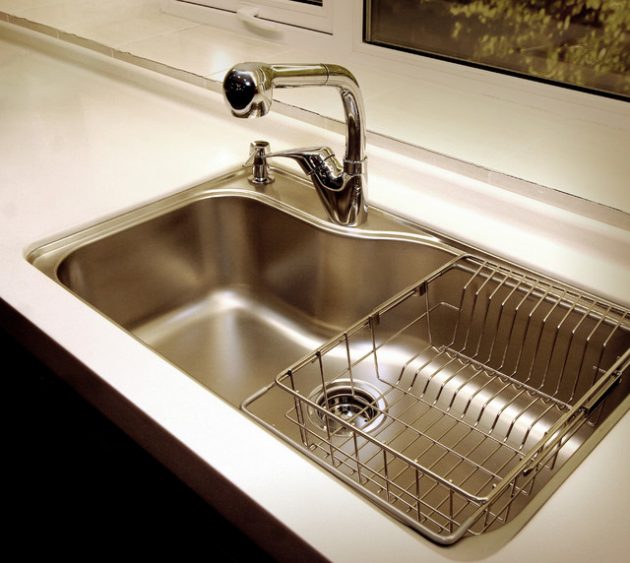
What type of faucet should I pair with a farmhouse kitchen sink?
When choosing a faucet for a farmhouse kitchen sink, it’s important to consider both the size and style of the sink. Because farmhouse sinks are often larger and deeper than standard sinks, you’ll need a faucet with a higher arc or longer reach to ensure full coverage of the sink area. Pull-down or pull-out faucets are particularly useful for directing water where it’s needed. The style of the faucet should also complement the overall aesthetic of your kitchen, whether that’s traditional, modern, or somewhere in between.
How do I maintain and care for a farmhouse sink?
Maintaining a farmhouse sink depends on the material it’s made from. Fireclay sinks are non-porous and easy to clean with a mild cleaner and soft cloth, but they can be sensitive to heavy impacts. Cast iron sinks with enamel coatings require gentle cleaning to avoid scratches, and it’s important to avoid harsh, abrasive cleaners. Stainless steel sinks are durable and resistant to rust, but they may show water spots or fingerprints, so regular cleaning and drying are recommended to keep them looking their best.
Can I install a farmhouse sink in an existing kitchen, or does it require special cabinetry?
Installing a farmhouse sink in an existing kitchen is possible, but it may require modifications to your cabinetry to accommodate the sink’s apron-front design. Because the front of the sink extends beyond the edge of the countertop, the surrounding cabinets need to be cut or rebuilt to fit the sink. It’s important to consult with a professional to ensure that the installation is done correctly and that your cabinets are properly reinforced to support the weight of the sink.

Everything and the Kitchen Sink: Farmhouse Sink
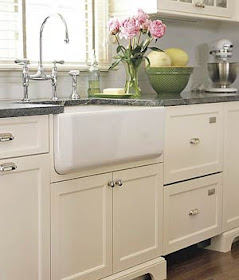
Cottage Farmhouse Sink Inspiration
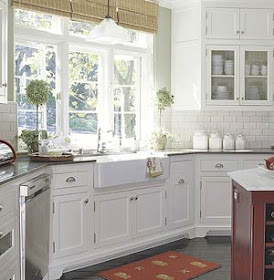
All in the Detail: and the kitchen sink
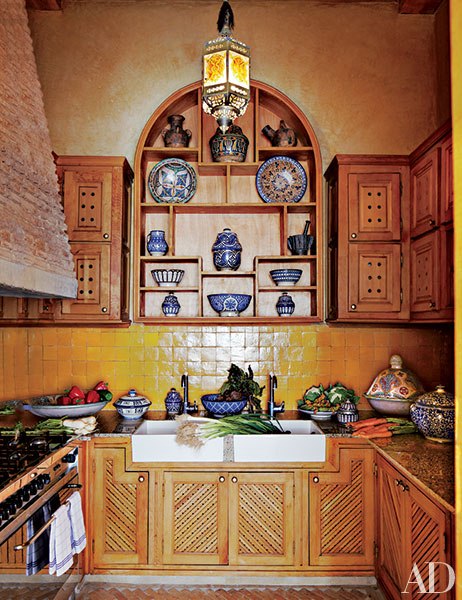
Farmhouse Kitchen Sink Ideas That Look Authentic – Talkdecor
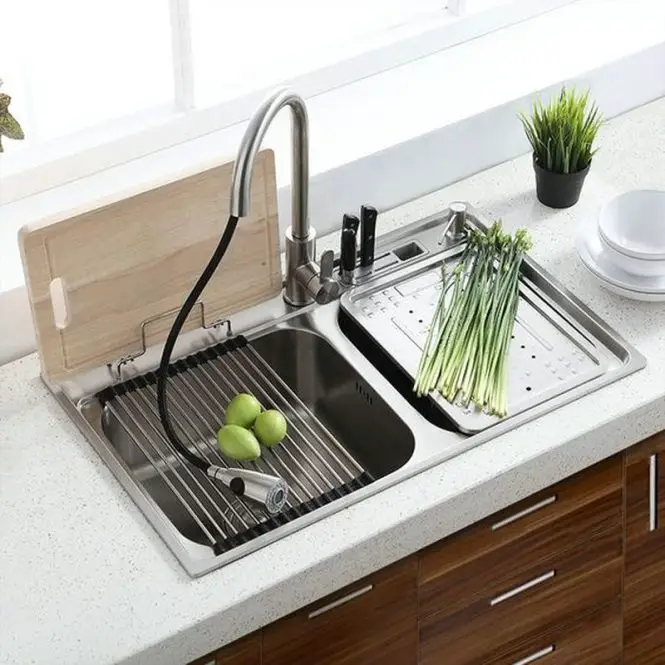
Related Posts:
- Kitchen Sink Is Clogged Home Remedy
- Kitchen Sink Cabinet With Dishwasher
- How To Unclog A Double Kitchen Sink With Garbage Disposal
- How To Do Kitchen Sink Plumbing
- Kitchen Sink Drama Arnold Wesker
- How To Remove A Stuck Kitchen Sink Drain Flange
- Long Narrow Kitchen Sink
- Kohler Kitchen Sink Faucet Repair
- How To Install Drain Pipes Under Kitchen Sink
- Kitchen Sink Trap Assembly